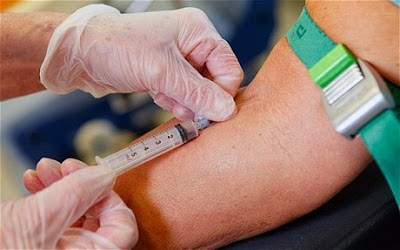World
Health Organisation (WHO) observes World Hepatitis Day on July 28, every year
to create awareness about the infectious disease among people. Its current
global campaign aims to eliminate the infectious disease by 2030. Hepatitis
kills about 1.4 million people every year worldwide and affects about hundreds
of millions. The disease may present itself in the form of acute or chronic
infection if not diagnosed in its earlier stage. There are no distinct symptoms
in the early stages. The infection can go unobserved for years, and many people
do not know they are infected until much later. This makes spreading awareness
all the more important.
What is Hepatitis actually?
The
liver has vital function of processing nutrients, filtering the blood and
fighting infections in the body. “Hepatitis” means inflammation of the liver.
When the liver is inflamed, its function can be affected. Heavy alcohol use,
toxins, some medications, and certain medical conditions can cause hepatitis.
However, hepatitis is most often caused by a virus. There
are five main hepatitis viruses – A, B, C, D and E. Hepatitis A and E are
short-term, while B and C may become chronic. Hepatitis D occurs only in those
patients who are infected with Hepatitis B.
How would you know if you have Hepatitis ?
The
only way to know if you have Hepatitis B is to get tested.
Hepatitis A and E
The
most common types of infection found in India, South-Asian and African
countries are Hepatitis A and E. Caused by HAV and HEV viruses respectively,
Hepatitis A and E are transmitted through contaminated food and water. The infections
caused by HAV and HEV are self-limiting and are 100% curable. The patient may
experience flu-like symptoms.
Hepatitis B, D and C
HBV, HCV and HDV spread from
infected person to another through blood and body fluids. The infection can
also be vertical - spreading from mother to child at the time of birth. The
viruses may also spread through blood transfusion, contaminated needles,
unsterilised tattoo needles and razors.
When a person is infected by
HBV, his/her immune system may fight against the foreign body and may clear them
from the body within 6 months. But if this does not happen within six months,
then the infection becomes chronic. The patient becomes a carrier of the
viruses and may pass on the infection to
others through blood or body fluid.
These viruses are like silent
killers. For instance, HCV remain dormant in the system for 10 to 15 years and
start to impair the liver in the later stages
The hepatitis B virus may or may
not cause symptoms. One third of the infected people get jaundice. Chronic
hepatitis B is treated with antiviral medications, which limits the damage done
to the liver.
But the good news about Hepatitis
B is the availability of vaccine. Children are administered vaccination in
three dosages and it can be administered to people of any age. HCV can
completely be eradicated from the system through treatment.
Symptoms:
The damage occurs in stages. Many people with
Hepatitis B do not have symptoms and do not know they are infected. If symptoms
occur, they can include: fever, feeling tired, lack of appetite, upset stomach, dark
urine, grey-colored stool, joint pain, pains over the liver, and
jaundice.
The next stage is fibrosis when
scar tissue starts to build up. This later develops into cirrhosis, when the
scarring takes over most of the liver. Liver failure and liver cancer are the
advanced stages of the infection.
How is Hepatitis B treated?
There is treatment available at
every stage of the infection. For
those with acute Hepatitis, doctors usually recommend rest, adequate nutrition,
fluids, and close medical monitoring. Some people may need to be hospitalized
How to prevent Hepatitis ?
·
Getting vaccinated against hepatitis B
· Adopting hygiene practices. Washing your hands
before eating food and after using the toilet
·
Avoid excessive intake of alcohol
·
Avoiding road-side eateries
·
Ensuring the food and water you consume are
contamination-free
·
Ensuring the use of safe needles and razors in
tattoo parlours and salons
·
Ensuring safe blood transfusion
·
Getting a screening done for hepatitis regularly
This World Hepatitis day take an oath to
prevent your liver from this infectious disease and let’s take a step forward
in this mission of eradicating Hepatitis by 2030.
References:
www.cdc.gov/hepatitis







